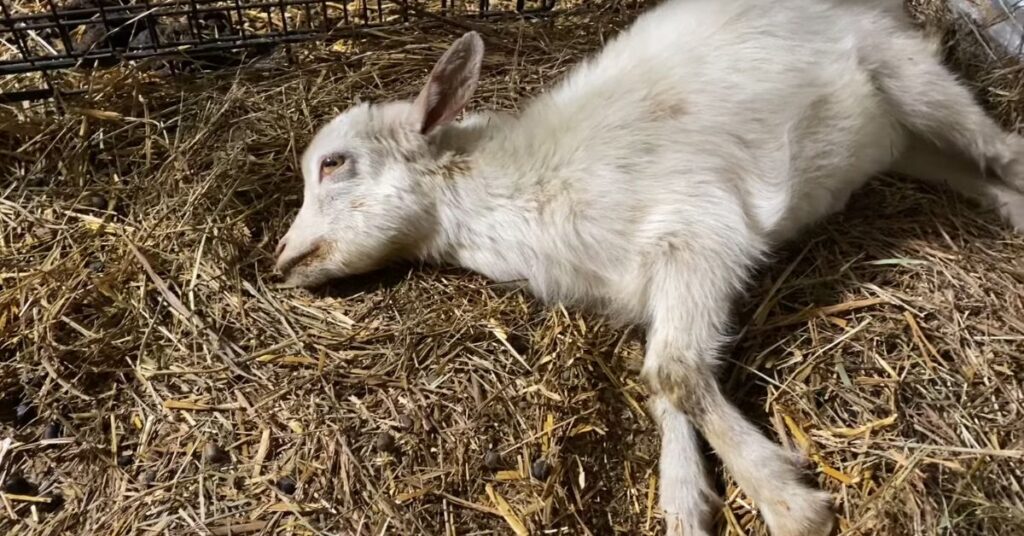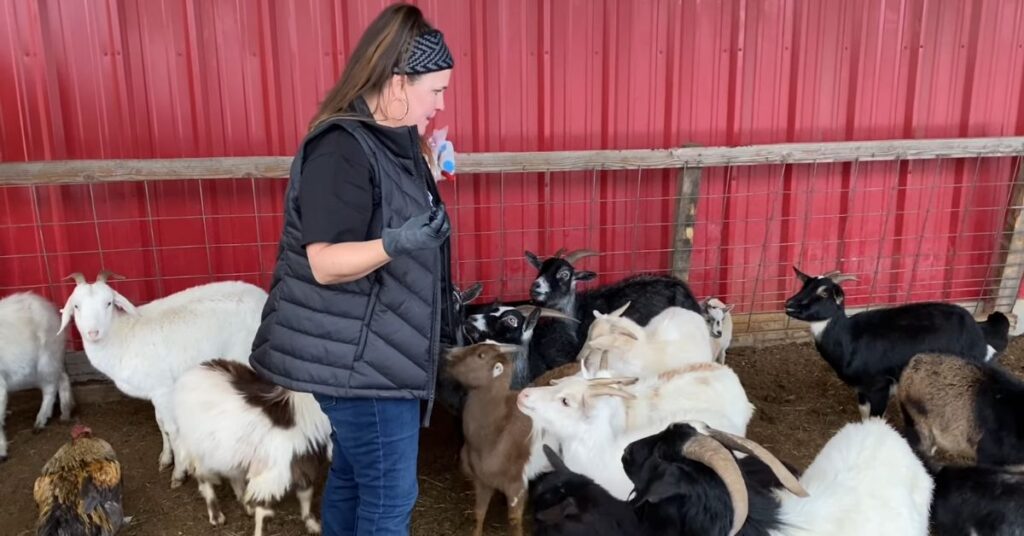Raising baby goats can be an incredibly rewarding experience. However, it also comes with many challenges. One of the most heartbreaking events for any goat owner is losing a kid. Understanding why baby goats die and how to prevent it is critical for their health and your peace of mind.
This comprehensive guide covers the most common reasons baby goats die, symptoms to watch for, and actionable tips to save your herd. With proper care and prevention methods, you can mitigate many risks and raise happy, healthy kids.
Causes of Baby Goat Death
Unfortunately, young goats are susceptible to many health issues that can quickly take their life. Being aware of the most common causes of kid mortality enables you to be proactive and intervene early.
Disease and Illness
Contagious diseases spread rapidly among newborn kids and can result in high mortality rates. Prompt treatment by a veterinarian is often necessary for survival.
Enterotoxemia
Also called overeating disease, enterotoxemia is caused by toxins produced by Clostridium perfringens type D bacteria. It most often occurs when kids consume large amounts of milk or grain. Signs include lack of appetite, lethargy, and diarrhea. Vaccination helps prevent this disease.
Coccidiosis
Coccidia parasites damage the intestinal lining, leading to diarrhea, dehydration, and death. Kids are especially vulnerable after weaning. Prevention includes keeping pens clean and dry, feeding off the ground, and using preventative medications.
Joint Ill
Joint ill is a bacterial infection that enters through the umbilical cord after birth. It causes fever, swollen joints, and difficulty standing. Antibiotics, anti-inflammatories, and proper navel care reduce risk.
Mineral and Vitamin Deficiencies
Deficiencies in key nutrients like copper, selenium, and thiamine can be fatal if left untreated. Supplying balanced minerals and supplements prevents many losses.
Copper
Needed for immune function and growth. Signs of deficiency include anemia, hair loss, and weakness. Provide loose goat minerals and copper boluses as needed.
Selenium
Necessary for muscle and immune health. Deficiency can cause white muscle disease and pneumonia. Give selenium gels or injectable supplements to deficient kids.
Thiamine
Thiamine enables carbohydrate metabolism and neurological function. Deficiency causes symptoms like seizures, blindness, weakness. Injectable or oral B-complex supplements can treat affected kids.

Hypothermia and Hyperthermia
Baby goats struggle to regulate body temperature. Hypothermia can set in quickly in cold temperatures, causing lethargy, weakness, and death. Overheating in hot weather leads to panting, racing pulse, disorientation, seizures, and demise.
Provide kids with shelter from wind and rain. Use heat lamps, sweaters, and warming boxes to prevent chilling. Ensure access to shade, fans, misters, and fresh water in hot climates.
Trauma and Predators
Kids are small and vulnerable to attack, especially by dogs and coyotes. Serious injuries can also occur from falls or the mother goat accidentally stepping on them. Protect kids with secure housing, guardian animals, supervision, and restraints as needed.
Congenital Defects
Genetic conditions present at birth, like organ defects, skeletal abnormalities, and cleft palate can be difficult or impossible to treat and result in death. Culling affected animals from your herd and providing balanced prenatal nutrition reduces risk.
Premature Birth
Kids born prematurely often have underdeveloped lungs and organs. Intensive medical care including oxygen therapy, antibiotics, and temperature regulation may save some if caught early. Prevent prematurity by reducing stress and illness in pregnant does.
Overfeeding
When kids consume too much milk at once, pathogens like enterotoxemia can take hold and quickly overwhelm their digestive system. Bottle feed measured amounts slowly and halt kids from nursing excessively to avoid this.
Pneumonia
Bacterial or viral pneumonia is a common killer of young goats due to their sensitive respiratory systems. It causes fever, labored breathing, and bluish gums. Antibiotics, anti-inflammatories, and supportive care can treat kids with pneumonia caught early.
Parasites
Heavy worm loads impair growth and damage organs. Anemia, diarrhea, and bottle jaw are common signs. Deworming and rotational grazing limit parasite exposure.
Weak Kid Syndrome
Some kids fail to thrive after birth despite receiving adequate milk. Causes include low birth weight, congenital defects, pneumonia, and hypoglycemia. Quick intervention with temperature support, tube or bottle feeding, and medical treatment can save many of these kids.

Preventing Kid Mortality
While not every baby goat death can be avoided, many can be prevented through proper herd management.
Recognizing a Sick Kid
Check young goats multiple times a day for signs of illness like lethargy, weakness, decreased appetite, coughing, nasal discharge, diarrhea, lameness, or lack of weight gain. Catching and treating problems early is crucial.
Treating Ailing Baby Goats
At the first sign of sickness, separate the affected kid from the herd to avoid spreading infection. Provide supportive care like supplementary feeding, hydration, and warmth. Consult a vet for medical advice and administer prescription medications as directed.
Caring for Premature and Underweight Kids
Preemies often need assistance with maintaining body heat, breathing, and eating. Use incubators or warming boxes set at 100-102°F. Check color and ensure gums are pink. Bottle feed goat milk replacer frequently.
Ensuring Proper Nutrition
Feed kids high-quality goat milk or milk replacer according to manufacturer instructions. Provide digestible hay and a small amount of goat-specific grain concentrate beginning around 2-3 weeks old to support rumen development. Supply loose minerals formulated for goats.
Importance of Colostrum
Feed newborns colostrum within the first several hours of birth. Colostrum provides essential antibodies, vitamins, and nutrition. Without it, kids have a poor chance of survival. Keep frozen colostrum from other does on hand in case a kid’s dam doesn’t produce enough.
Providing Shelter from Elements
Ensure kids have a dry, draft-free shelter to protect them from wetness, wind, and extreme cold or heat. Provide ample clean bedding. Maintain proper ventilation but avoid drafts. Use supplemental heat like lamps as needed.
Maintaining Clean Environments
Regularly muck out shelters and pens to remove feces, urine-soaked bedding, and other contaminants. Disinfect water and feeding containers daily. Keep birthing areas clean for newborns. These measures help prevent spread of disease.
Biosecurity Measures
Isolate any sick goats immediately. Quarantine new arrivals before introducing them to your herd. Restrict visitors and their contact with kids. Require disinfection of shoes/clothing and hand washing. Follow strict protocols when assisting births.
Checking for Birth Defects
Thoroughly exam all newborn kids for abnormalities. Some defects may be fixable with medical intervention, while others, like neural tube defects, require humane euthanasia. Record any defects and review your herd nutrition and breeding program.
Monitoring Food Intake
Check daily that all kids are nursing sufficiently and gaining weight. For bottle-fed kids, monitor volume consumed. Adjust milk quantity and feeding schedules to ensure kids get adequate nutrition for growth and health without overeating.
Safely Deworming Kids
Test fecal samples to identify gastrointestinal parasites needing treatment. Weigh kids accurately before deworming and calculate dosage carefully based on product directions. Follow the meat or milk withdrawal period after deworming before consuming milk or meat.
Vaccinations
Consult your veterinarian on the vaccination schedule for your region and operation. Common kid vaccines help prevent overeating disease, tetanus, sore mouth, and pneumonias. Time vaccinations properly to provide protection when kids are most vulnerable.
Working with a Veterinarian
Establish a relationship with a goat veterinarian before you need one. Your vet can advise you on your herd health program, review nutrition, prescribe medications for both treatment and prevention, and provide urgent care as needed. Keep their contact information handy.

What To Do if a Kid Dies
Losing a beloved baby goat is always hard. Take time to grieve but also take action to determine what happened and prevent further deaths.
- Examine the body to identify any lesions or abnormalities indicating cause of death if possible. Collect fecal or tissue samples for testing by a lab.
- Record details on the kid’s gestational age, birth weight, health status, medications given, and circumstances surrounding death for your own records and to share with your veterinarian.
- Review your herd management, nutrition program, and vaccination protocols to identify any risk factors that may have contributed to the death.
- Discuss the case with your veterinarian to get their recommendations on prevention for other kids.
- Take biosecurity measures to prevent spread to other animals if an infectious cause is suspected.
- Provide extra observational checks on remaining kids for signs of illness.
- Avoid certain triggers like diet changes around weaning if related to the cause of death.
- Make any needed improvements to housing, sanitation practices, medical care protocols, and nutrition.
Proper Disposal Methods
Properly disposing of deceased goats controls disease spread and prevents attraction of predators. Safe options include:
- Composting in a designated compost enclosure if permitted by local regulations
- Burial at least 3 feet deep in an area located away from wells and water sources
- Incineration if allowed in your region; check local burn laws
- Cremation through a pet cremation service
- Rendering pickup by a disposal service where available
- Transport to a landfill that accepts animal carcasses; call ahead to arrange
Learning from Losses
While the loss of a kid is always sad, you can draw valuable lessons from each death to make your herd stronger.
- Note details like age, symptoms, and treatment for future reference
- Analyze if genetics, preventative care, housing, biosecurity, or nutrition could be improved
- Research the specific cause of death to deepen your knowledge
- Consult with other experienced goat owners
- Create a plan to implement any changes needed
- Continue educating yourself on goat health through courses and veterinary guidance
By gleaning insights from losses and making adjustments, you can reduce risks over time and become a more skilled goat caretaker.
Conclusion
The death of a beloved baby goat is heartbreaking. However, many risks can be mitigated with attentive animal husbandry.
Closely monitor kids for illness, supply proper nutrition, vaccinate accordingly, and enlist your veterinarian as a partner. Take action at the first sign of trouble. Follow sound biosecurity and prevention methods.
And should the unfortunate occur, deal with remains respectfully while taking away lessons that benefit your future herd. With dedication to your goats’ wellbeing, you can tip the scales toward healthy, lively kids.
References:
- https://www.ncbi.nlm.nih.gov/books/NBK216733/
- extension.msstate.edu/sites/default/files/topic-files/goats/commongoatdiseases.pdf
- https://www.merckvetmanual.com/musculoskeletal-system/lameness-in-goats/copper-deficiency-in-goats
- https://www.msdvetmanual.com/generalized-conditions/caprine-arthritis-and-encephalitis/caprine-arthritis-and-encephalitis
- https://www.canr.msu.edu/news/white-muscle-disease-in-sheep-and-goats
- https://www.canr.msu.edu/sheep_goats/health/polioencephalomalacia
- https://in.virbac.com/sheep-and-goat/diseases/pneumonia-in-sheep-and-goat
- https://www.sciencedirect.com/topics/medicine-and-dentistry/pulmonary-surfactant
- Common Diseases in Goats (msstate.edu)
